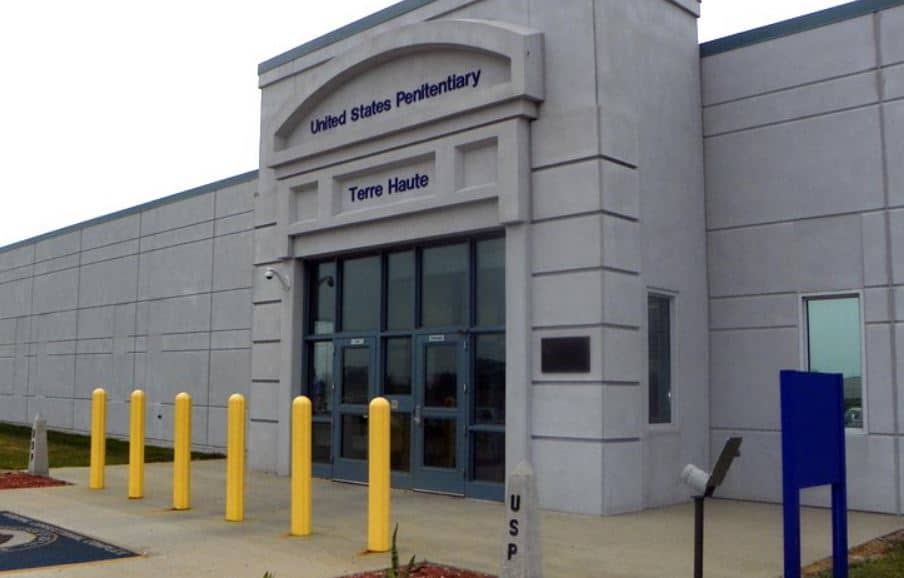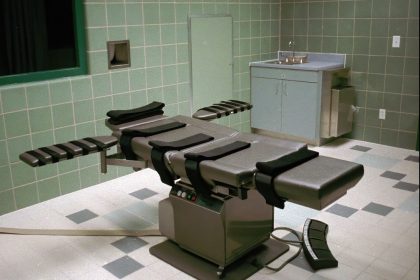Federal Executions to Resume Amid Due Process, COVID-19, and Protocol Concerns

WASHINGTON – In a few days, the U.S. Justice Department is set to resume federal executions after what has essentially been a 17-year moratorium. The men scheduled to die by lethal injection starting next week at a prison in Terre Haute, Ind., will be part of the quickest succession of executions in the history of the modern U.S. death row.
Barring any reprieves, on Monday, July 13th, Daniel Lewis Lee is scheduled to die following his conviction of killing a family of three; Wesley Ira Purkey, convicted of rape and murder, was scheduled for July 15th but has received a brief temporary stay; Dustin Lee Honkin, convicted of killing five, is scheduled for July 17th; and Keith Dwayne Nelson, who pleaded guilty to kidnapping, rape, and strangulation, is scheduled to follow on August 28th.
The decision to go ahead with the executions has been criticized for a variety of reasons and is facing some legal challenges. These executions more than double the U.S. federal executions that have taken place since the death penalty was officially reinstated in 1988. Opponents of the death penalty in these cases are citing junk science, mental illness, ineffective assistance of counsel, and lack of appellate review as reasons for stays of execution.
Victims’ family members have asked for temporary stays as they state attending executions could put them at risk for COVID-19; there are legal claims against a new lethal injection protocol to be addressed; and all this at a time when the integrity of the criminal justice system is front and center for America.
“The death penalty has to stand as one of the most unjust and brutal aspects of our criminal justice system,” said Miriam Gohara, clinical associate professor at Yale Law School, speaking at a virtual discussion entitled ‘Tinkering with the Machinery of Death’ convened by the progressive legal American Constitution Society.
Gohara claimed the federal government has moved out of line with state interests, and cites a “national move away from the death penalty,” as a vast majority of individual states have either abolished or not used the death penalty in the last decade.
To punctuate her claims, Gohara says the federal death penalty is not a national and uniformly imposed penalty. In fact, there are many people on death row from states that have abolished the death penalty, and three states alone: Virginia, Texas, and Missouri are responsible for half of all federal death sentences.
Only one of the current 62 federal death row inmates is being held for a terrorism-related crime. Others are convicted of kidnapping, bank robbery, or other cases for which the federal government has jurisdiction, but may not have a clear compelling national interest.
Gohara is one of many urging the federal government not to move forward, especially in resuming this rapid sequence of executions during a continuing pandemic. She further mentions “cost, fairness, and the risk of executing an innocent person.”
Lee’s victims’ family members have asked for a delay in his execution for another reason. They want to witness the execution, but claim COVID-19 conditions prohibit this, and they want a delay until a time when they are no longer at health risk. Honkin has a spiritual advisor who, similarly, wants to be present, but claims he cannot due to health concerns.
Bureau of Prisons officials insist that family members of victims and inmates are allowed to attend and that the agency will be able to conduct the executions safely. Personal protective equipment, including masks, gloves, gowns, and face shields, will be made available for witnesses and temperature checks will be in place, but there are no plans to test anyone attending the executions for COVID-19.
“There is a human impact on everyone involved,” said Megan McCracken, counsel for the Lethal Injection Project of the Death Penalty Clinic at the U.C. Berkeley School of Law.
If the schedule goes forward, McCracken worries about the risks, especially for death row inmates and their execution teams. While Bureau of Prisons officials claim they are prepared and have been holding drills for months, McCracken says that executions typically are scheduled a minimum of one month apart. She says there could be risks associated with the quick succession of executions, such as added mental pressures, and the psychological and emotional toll of scheduling the executions so close together. Additionally, rushed schedules could mean that mistakes are more likely to happen.
This is all happening under a new federal execution protocol. Lethal injection procedure previously involved a three-drug combination, but Attorney General William Barr approved a new procedure that replaces it with a single drug, pentobarbital. There is precedent for this, as some states started using pentobarbital for executions in 2011. But to implement new procedures and remain in conformity with the Federal Death Penalty Act, several steps need to be taken.
Death penalty opponents argue that Barr’s decision to use pentobarbital in executions failed to go through the Administrative Procedures Act (APA), which governs the process of rulemaking for federal agencies. The Department of Justice also has not commented on where the pentobarbital it plans to use in executions will come from, or how it will be administered.
According to a DOJ statement, the Supreme Court has upheld the use of the drug, but McCracken and others argue against this “rush to execute despite the fact that none of the legal claims of the new protocol have been addressed.”



















